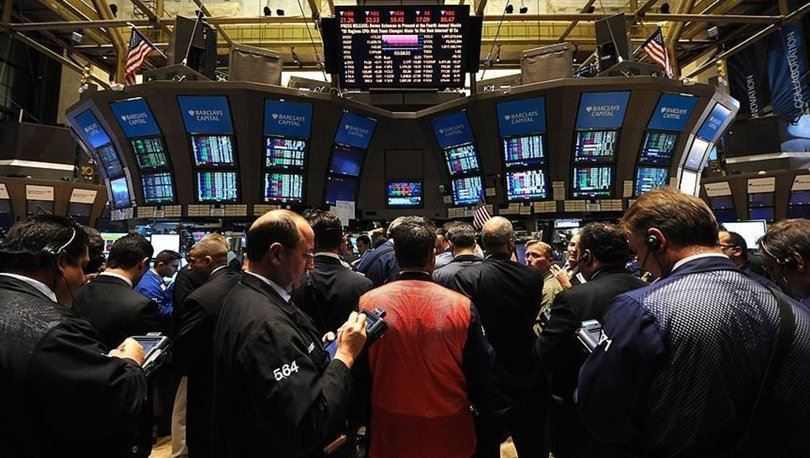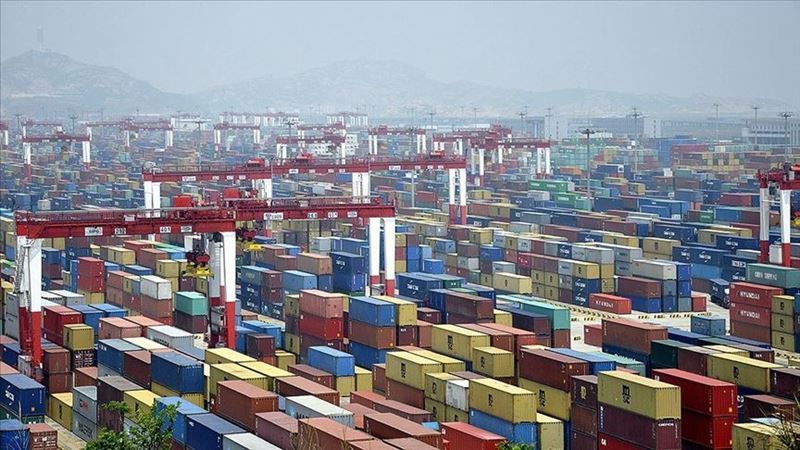While the global markets followed a negative course with the new sanctions against Russia and the US Federal Reserve's (Fed) meeting minutes strengthening the expectations for aggressive tightening in monetary policy, eyes are on the intense data agenda alongside the European Central Bank's (ECB) meeting minutes. translated.
While the developments regarding the Russia-Ukraine war continued to be the main risk factor shaping the pricing, the risk perception increased after the new sanctions against Russia that were expected to be announced by the USA and Western countries for a while.
Britain has decided to freeze all assets of Russia's largest bank, Sberbank, and to ban all new foreign investments by British firms in Russia. The United States, on the other hand, placed the daughters of Russian President Vladimir Putin and two of Russia's leading banks, Sberbank and Alfa Bank, on the sanction list. On the other hand, a ban was imposed on new investments in Russia.
With these developments feeding inflationist concerns, the sensitivity of investors to the statements made by the central banks has also increased. In the minutes of the March meeting of the Fed Open Market Committee (FOMC), important signals were given regarding the downsizing of the $9 trillion balance sheet. In the minutes, it was stated that most of the officials expressed the opinion that it is appropriate to make one or more 50 basis point rate hikes this year and to start the process of reducing the balance sheet with $95 billion per month.
After the minutes, the expectations in the markets that the bank will increase the interest rate by 50 basis points in May and that the balance sheet reduction process will be strengthened, this situation brought along the deepening of sales in the stock markets and the increase in the demand for the dollar. In the bond market, outflows accelerated, while the US 10-year bond yield decreased to 2.58% after testing the highest level since March 2019 with 2.66 percent. The dollar index, on the other hand, reached the peak of almost 2 years with 99.8.
On the other hand, oil prices, where volatility continued due to supply and demand-side pressures, dropped sharply after the International Energy Agency (IEA) announced the amount of oil to be released as 120 million barrels. The barrel price of Brent oil was stabilized at 102.2 dollars today, after falling to 101.5 dollars with a decrease of 3.7 percent yesterday.
With these developments, the sales that were effective in the previous day continued in the New York stock market and the Nasdaq technology index lost 2.22 percent, the S&P 500 index lost 0.97 percent and the Dow Jones index 0.42 percent. On the side of the US index futures contracts, it is noteworthy that the new day started with a selling trend.
On the European side, Sberbank's shares lost 8 percent after the USA and Western countries announced the sanctions against Russia. Uncertainties regarding the energy market and inflationary concerns remained at the center of the agenda, while the Producer Price Index (PPI), announced yesterday in the region, broke a record with an annual rate of 31.4 percent in February.
DAX 30 index decreased by 1.89 percent in Germany, FTSE 100 index decreased by 0.34 percent in England and CAC 40 index decreased by 2.21 percent in France. Euro/dollar parity carried its decline to the 5th trading day yesterday and saw below 1.09. In the European index futures contracts, a selling trend is followed before the minutes of the ECB's meeting, which will be announced today. In the ECB minutes, the answer will be sought to what extent the bank will follow the Fed's hawkish stance in the face of rising inflation.
While the increase in the number of new types of coronavirus (Kovid-19) cases across Asia and the tightened measures in this context are the main factors that suppress the risk appetite in the markets, contrary calls continue to come from Japan despite the tight monetary policies globally. Asahi Noguchi, a board member of the Bank of Japan (BoJ), said that ultra-loose monetary policy should be maintained as it will take significant time to reach the 2 percent inflation target. With these developments, the Shanghai composite index in China is 1.1 percent, the Nikkei 225 index in Japan is 1.6 percent, and the Hang Seng index in Hong Kong is down 1.2 percent.
Domestically, the BIST 100 index, which started the day with a rise yesterday, fell close to the close with the decreasing risk appetite globally and closed the day at 2,316.40 points with a depreciation of 0.43 percent. Dollar/TRY, on the other hand, is trading at 14,7350 with an increase of 0.1 percent at the opening of the interbank market, after closing at 14,7102 with a decrease of 0.1 percent yesterday.
Analysts stated that the new sanctions announced within the scope of the Russia-Ukraine war reduced the hopes of negotiation and that the concerns of the Fed's aggressive tightening in monetary policy were strengthened, adding that a negative course was followed in the global markets with these developments.
Analysts stated that today, in addition to the statements of the central bank officials, the minutes of the ECB meeting will be followed, and the Treasury cash balance in the country, weekly unemployment benefits in the USA abroad, industrial production in Germany and retail sales in the Euro Zone come to the fore on the data agenda.
Analysts reported that technically, 2,290 points in the BIST 100 index are in the support position, and the 2,350 and 2,400 levels are in the resistance position.
The data to be followed in the markets today are as follows:
09.00 Germany, February industrial production
12.00 Eurozone, February retail sales
14.30 March meeting minutes of the ECB
14.30 Turkey, weekly money and bank statistics
15.30 US, weekly jobless claims
17.30 Turkey, treasury cash balance for March











Comments
No comment yet.